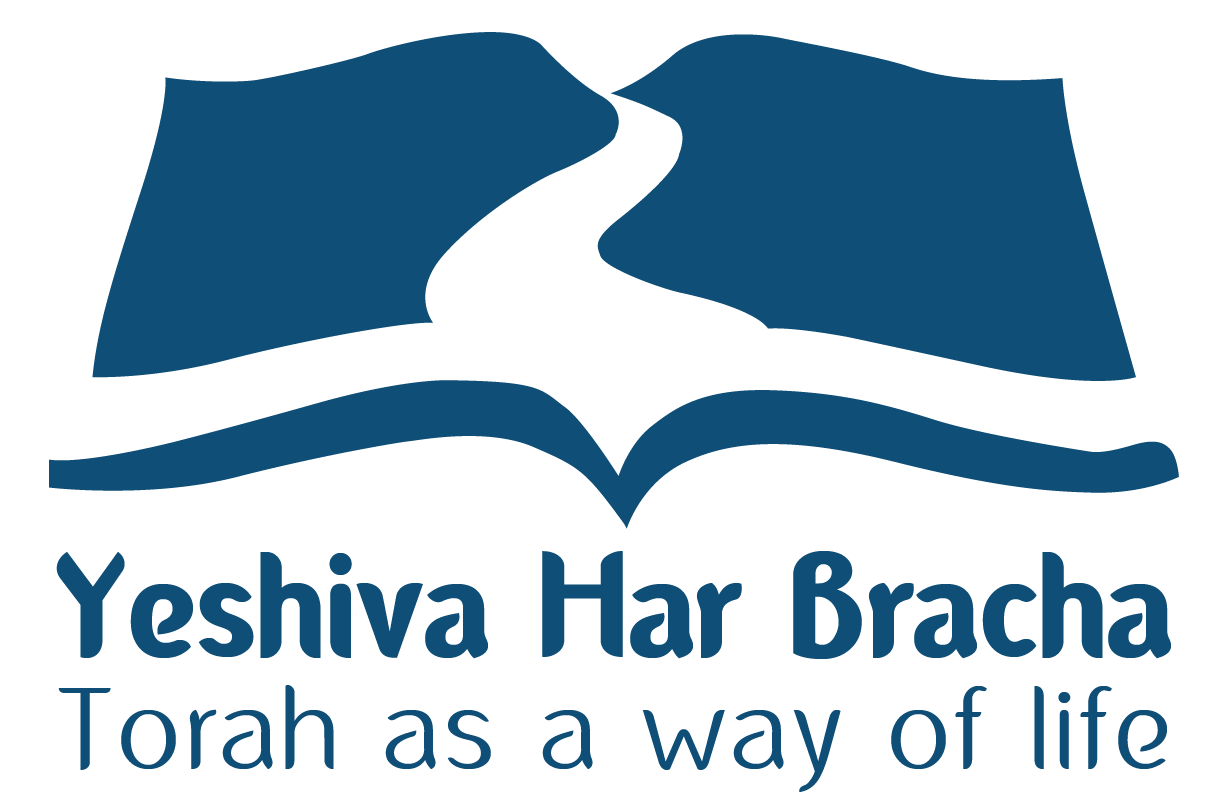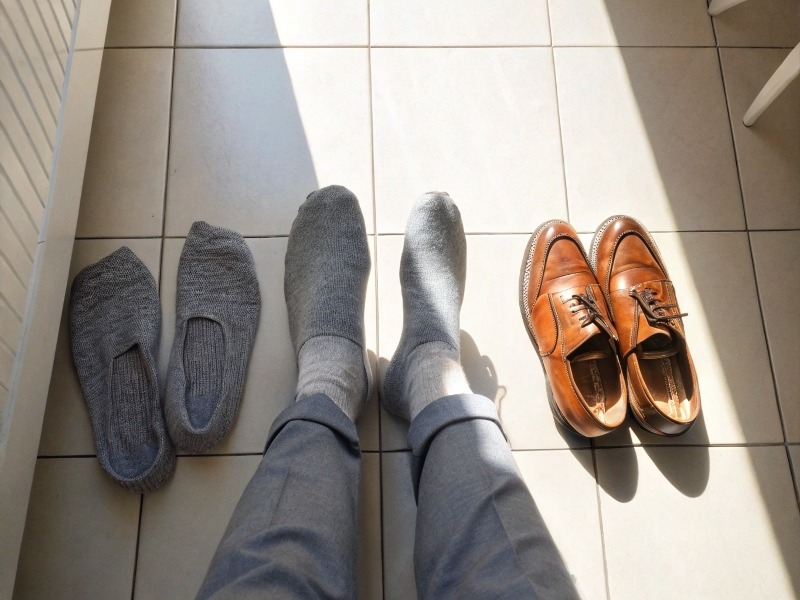From sunset until the time of the departure of Shabbat is a time shared by Shabbat and the fast ● Before sunset one stops eating and drinking ● The prevalent custom is to remove shoes after the departure of Shabbat ● When changing from Shabbat clothes to weekday clothes, one should wear clothes that have already been worn ● The havdalah over the cup is postponed until after the end of the fast ● One blesses over the candle at the conclusion of Shabbat, because the blessing over the candle is not dependent on the cup of wine ● A sick person who needs to eat, is obligated to make havdalah over the cup before he eats ● It is forbidden to walk on Tisha B’Av in shoes and sandals that one is accustomed to walk in all year, even if they are not made of leather
This year, Tisha B’Av falls on Sunday, and several laws change as a result. The main difference stems from the fact that between Shabbat and the beginning of the fast there is an intermediate time, in which Shabbat has not yet ended, but the prohibitions of the fast already apply. This is because we are uncertain when the previous day ends and the new day begins, at shkiyat ha’chama (sunset) or at tzeit ha’kochavim (the emergence of the stars). If so, the time between sunset and the emergence of the stars is doubtfully day and doubtfully night, and is called ‘bein hashmashot‘ (twilight). Since there is a commandment to add to Shabbat, Shabbat continues for several more minutes after the emergence of the stars. This is the time of the departure of Shabbat that appears in the calendars, which also includes the addition to Shabbat.
It emerges, therefore, that from sunset until the time of the departure of Shabbat is a time shared by Shabbat, and the fast. During this time, it is forbidden to do anything that would appear as a mourning custom, for there is no mourning on Shabbat. On the other hand, from sunset, one must avoid things that are not necessary from the perspective of Shabbat, such as eating, drinking, bathing and anointing. We will detail the laws.
Between Seudah Mafseket and Seudah Shlishit
When the eve of Tisha B’Av falls on a weekday, already in the Seudah Mafseket (final meal) one begins to practice mourning customs. However, when the eve of Tisha B’Av falls on Shabbat, there is no sign of mourning on Shabbat, but rather, one eats and drinks whatever one wants without limitation, and also sings Shabbat songs as usual.
However, one stops eating and drinking before sunset, and there is no concern of harming Shabbat in this, because there is no obligation from the perspective of Shabbat to continue eating Seudah Shlishit (the third meal) after sunset. It is also proper not to sing joyful songs after sunset, and there is no sign of mourning in this, since in any case, one is not accustomed to sing joyful songs at all times during Shabbat.
Time of Shkiyat HaChama (Sunset)
In Jerusalem: 19:39, in Tel Aviv: 19:37, in Haifa: 19:40, in Be’er Sheva: 19:38.
Bathing During the Intermediate Time
Similarly, one refrains from bathing and anointing from sunset until the departure of Shabbat, since in any case, one does not bathe all Shabbat. But one who left the bathroom during twilight, should wash his hands as usual, for if he does not do so, it turns out that he is mourning on Shabbat.
Changing Clothes and Shoes
One remains dressed in Shabbat clothes and shoes, and continues to sit on chairs and greet one another, until the time of the departure of Shabbat (about 35 minutes after sunset). And then one must say ‘Baruch ha’mavdil bein kodesh le’chol’ (“Blessed is He who separates between holy and mundane”), and with this, one parts from Shabbat. Afterwards, they will remove their shoes, take off their Shabbat clothes, and put on weekday clothes.
Some have the custom to remove their shoes already at sunset, because wearing sandals is one of the things forbidden on Tisha B’Av, and since in any case there is no obligation to walk in shoes all Shabbat, there is no harm to the honor of Shabbat if one removes them at sunset. But if there are people present who would feel that he removed his shoes for the purpose of mourning, it would be prohibited. Therefore, the prevalent custom is to remove shoes after the departure of Shabbat. When changing from Shabbat clothes to weekday clothes, one should wear clothes that have already been worn the previous week, because it is forbidden to wear laundered clothes on Tisha B’Av.
Evening Prayer
It is customary to delay the evening prayer at the departure of Shabbat by fifteen minutes after the time of departure of Shabbat written in the calendars, so that the worshippers will have time to part from Shabbat in their homes, remove their shoes, change their clothes, and come to the synagogue for evening prayer and the reading of Lamentations in weekday clothes.
Havdalah in Speech and Over Wine
Every Shabbat we fulfill the commandment of havdalah both in speech, and over a cup of wine. The havdalah in speech is fulfilled by saying ‘Atta chonantanu‘ (‘You have graced us’) in the evening prayer, or by saying ‘Ha’mavdil bein kodesh le’chol’, and this is what permits doing work. The havdalah over the cup permits eating and drinking.
Since at the conclusion of Shabbat the fast begins, it is not possible to make havdalah over wine. Therefore, the havdalah over the cup is postponed until after the end of the fast of Tisha B’Av, and at the conclusion of Shabbat at the time of the beginning of the fast, we fulfill the havdalah in speech by saying ‘Baruch ha’mavdil bein kodesh le’chol’, and afterwards, it is permitted to do work (Peninei Halakha: Z’manim 9:5).
Blessing Over the Candle
One blesses over the candle at the conclusion of Shabbat, because the blessing over the candle is not dependent on the cup of wine, but rather, it is thanksgiving for the creation of fire that was revealed to man at the conclusion of Shabbat. It is customary to bless over the candle after the end of the evening prayer before the reading of Lamentations, when candles are lit. Women also bless over the candle. If they are in the synagogue – they hear the blessing from the cantor, and benefit from the light of the candle lit near them. And if they are at home, they light a candle and recite the blessing over it (see Peninei Halakha: Shabbat 8:1, 1).
Havdalah Over a Cup at the End of the Fast
At the end of the fast, one must make havdalah over the cup, and one blesses two blessings, ‘Al ha’gefen‘ and ‘Ha’mavdil‘. But one does not bless over the spices and over the candle. At the end of the fast, it is forbidden to eat before saying the havdalah over the cup.
Havdalah for a Sick Person Who Needs to Eat on Tisha B’Av
A sick person who needs to eat on Tisha B’Av, before eating, is obligated to make havdalah over the cup. If possible, it is preferable that he make havdalah over a ‘mashkeh medina‘, that is, over white beer that contains alcohol. And if there is no white beer, one can make havdalah over coffee, which according to many poskim is also considered a ‘mashkeh medina’ (Peninei Halakha: Shabbat 8:4). And if one does not have a ‘mashkeh medina’, he should make havdalah over grape juice, which does not bring about joy. And bedi’avad (post facto), he should make havdalah over wine, and drink a me’lo lugmav (about 40 ml).
A minor who eats on the fast day does not need to make havdalah before eating.
From the Laws of the Fast of Tisha B’Av
Washing
Any washing for pleasure is forbidden on Tisha B’Av, even of part of one’s body, and this includes spraying perfume for additional good smell. But washing that is not for pleasure is permitted. Therefore, it is permitted to wash food and dishes for the purpose of preparing the meal after the fast, or for the children. And similarly, one who became dirty or sweated profusely, is permitted to wash that place of his body. If the dirt or bad smell do not pass with water, he should use soap. And similarly, one whose mind is not settled without washing his face in the morning, is permitted to wash it. Likewise, one who suffers greatly without rinsing his mouth in the morning, is permitted to rinse the cavity of his mouth with water, making great effort not to swallow water (on Yom Kippur it is forbidden).
It is permitted to pass a damp towel over the face, provided that it does not have such moisture that could moisten his hand in a way that his hand could moisten another thing, because with such little moisture, there is no prohibition of washing.
Washing for the Purpose of a Mitzvah
Washing for the purpose of a mitzvah is permitted as necessary. Therefore, after rising from sleep or leaving the bathroom, one washes only the fingers and the joints of the fingers. And one who touches a covered place on his body or his shoes before prayer, should wash in a similar fashion.
One who touches these places before Torah study, should act as he does all year – some wash both hands, and some wash only one hand, and some are satisfied with just rubbing their hands on their clothing. In any case, those who are accustomed to wash, on Tisha B’Av, wash only the fingers and joints of the fingers.
Anointing, Perfumes and Smoking
It is forbidden to anoint even a small place on the body with oil or ointment for pleasure, and similarly it is forbidden to use cosmetic products such as powders and creams for beautifying the skin or for good smell. But it is permitted to apply vaseline to cracks in the lips, and ointment against itching or against mosquitoes. One does not smell perfumes on Tisha B’Av, because one should reduce pleasure on this day. One who is addicted to smoking and needs it greatly, is permitted to smoke in private.
Wearing Shoes
One of the five afflictions forbidden on Yom Kippur and on Tisha B’Av is wearing shoes or sandals. In the past, it was customary to make them from leather, because from other materials, they did not know how to make good shoes and sandals that would be both strong, durable, and flexible. The Rishonim (early authorities) disagreed whether it is permitted to walk in sandals that are not made of leather, and many of the Achronim (later authorities) ruled leniently (Shulchan Aruch Orach Chaim 614:2). However, it appears that they were lenient regarding shoes and sandals that were inferior, and therefore, they ruled according to the opinion of those who hold that they do not have the status of shoe and sandal. But today, when we are accustomed to make good shoes and sandals from various materials that are not leather, all types of shoes and sandals that we are accustomed to walk in during the year outside in a place that has stones, are forbidden on Tisha B’Av, and it does not matter from what material they are made.
Therefore, it is forbidden to walk on Tisha B’Av in shoes and sandals that one is accustomed to walk in all year, even if they are not made of leather. But it is permitted to walk in simple house shoes made of cloth or rubber. However, one should not protest against those who are lenient in wearing shoes or sandals that are not made of leather. One who walks in a place where there is danger from snakes and scorpions, or in a place of mud and mire, is permitted to wear leather shoes, and similarly a soldier in operational service can wear army boots. One who needs insoles to prevent pain, is permitted to walk in them.
Sitting on the Ground
It is customary to sit on the ground from the beginning of the fast until midday, and some are stringent until the afternoon prayer. One for whom it is difficult, is permitted to sit on a low stool. And one for whom even this is difficult, such as one who is concerned about his back, and similarly a pregnant woman, an elderly person and a sick person, are permitted to sit on a regular chair. Many have the custom to be particular and express the mourning by sleeping on a mattress placed on the ground. In the afternoon hours, one sleeps on his bed as usual.
Minors
As with all the commandments, it is a commandment to educate the minors regarding the commandments related to Tisha B’Av and mourning over the destruction, except that due to the weakness of the minors, it is impossible to educate them to fast. Only from age nine and up, is it customary to educate them to fast several hours during the day according to their strength, but they do not fast the entire day. Many have the custom to be particular to educate minors who have reached age six, not to eat and drink on the night of the fast. When feeding minors, one gives them simple foods, in order to educate them to mourn with the community.
In the other mourning customs, one educates minors during the entire fast already from age six. Some have the custom to be stringent regarding the prohibition of wearing shoes for minors from age three, in order to express our anguish over the destruction (I was assisted by the wording of Rabbi Oren Matza shlita, in his book ‘Kitzur Halakha,’ abbreviation of the laws in “Peninei Halakha”).
This article appears in the ‘Besheva’ newspaper and was translated from Hebrew.








